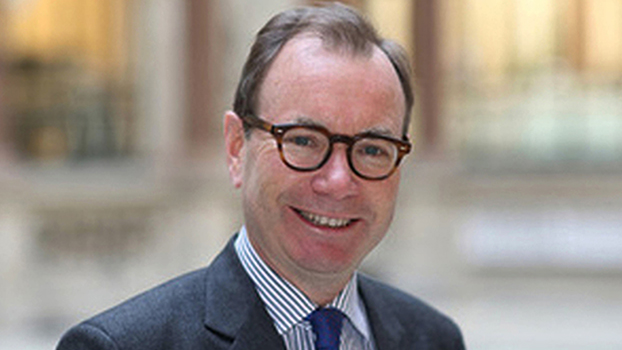Bangladesh to get UK GSP despite graduation

The UK, which is now taking independent business decisions after exiting from the European Union bloc, has announced to continue GSP privilege for Bangladesh for three years beyond the graduation from the LDC to help the country face new economic challenges.
It means that if the graduation takes place in 2024, the GSP privilege will continue to 2027 and if the graduation happens in 2026 due to the pandemic delay, then the benefit will remain as it is till 2029.
British High Commissioner Robert Chatterton Dickson made the announcement at a press briefing on Wednesday, a day after the first-ever trade and investment dialogue between the two countries.
The two-way trade is about £3.4 billion with £2.8 billion Bangladeshis exports.
The envoy said more British companies want to come to Bangladesh as they find the market promising.
Education is a new area of cooperation, he said, as nine UK universities want to set up their campuses in Bangladesh to provide higher education of international standard.
“It’ll be win-win (if they get the permission),” he said, because a lot of Bangladeshi students go to the UK for higher studies.
If they get the same quality of education in Bangladesh, then this will save money as well as brain drain that happens otherwise, he said.
But there are some issues that stand in the way of ease of doing business here. Those include, according to the High Commissioner, arbitrary tax demand, dispute resolution, bureaucracy, corruption and lack of coordination among the ministries.
“Bangladesh is a fantastic place for investment but it would be more fantastic if issues related to the ease of doing business can be addressed,” he said.
He also urged the authorities to make the financial and education sector more open to foreign investors. Insurance, stock exchange, and the capital market are some areas of the financial sectors where British investors have interests, he said.
The first ever UK-Bangladesh Trade and Investment Dialogue took place at the Ministry of Commerce in Dhaka on Tuesday.
The UK Government was represented by the British High Commissioner while the Government of Bangladesh was represented by the Commerce Secretary, Dr. Md. Jafar Uddin.
Both sides agreed to develop a future trade partnership that will increase mutual prosperity and further Bangladesh’s economic development as it graduates from Least Developed Country status, according to the joint statement.
Both countries agreed to improve the trading relationship through a mutual commitment to private sector led growth, encouraging investment, and addressing barriers to trade faced by their companies when exporting goods and services.
They discussed cooperation in areas such as GSP, LDC Graduation, investment cooperation, access of Bangladeshi professionals to UK service sectors, trade facilitation, ease of doing business, financial sector development, higher education provision, taxation issues and intellectual property protection.
“The UK is committed to working with Bangladesh to create a trade and investment relationship that helps both of our economies grow. Foreign Investment can provide jobs, transfer skills and generate revenue. A conducive business environment and removal of market access barriers can benefit both countries,” the High Commissioner said after the dialogue.
“This dialogue will pave the way for our products, services and professionals to penetrate the UK market and contribute to increased investment in Bangladesh and expand our exports,” said the commerce secretary.
Explaining about the dialogue at the briefing, the British High Commissioner said there would be an increasing opportunity for UK companies to do business in Bangladesh following Brexit.
“We have a strong trading relationship. As the Bangladesh market develops and matures, UK companies want to be the significant part of that,” he said, adding that to remain competitive in the world, Bangladesh should address regulatory uncertainty and compliance concerns.
“I want to see the Bangladesh market more open to the best of British investment and expertise,” he said, adding that many systems here need to be evolved to be globally competitive and world class to be a full-fledged developing country.
Companies say that they have even problems sometimes dealing with the tax authorities, he said.
“Our companies do not mind paying taxes but problems arise when they find unexpected and arbitrary demands from the tax authorities.”
“Companies do not like to be subject to arbitrary and unexpected demand,” he said adding that during the dialogue he raised these issues with the tax officials.
Strong political will and keeping these issues under focus continuously are essential, he said.
Highlighting the prospect of Bangladesh becoming a top investment destination, he said that as per HSBC survey Bangladesh is one of the top performers in Asia.
“During pandemic the country manages to maintain positive growth and I believe that the country’s economy will continue to grow after the pandemic is over.”




